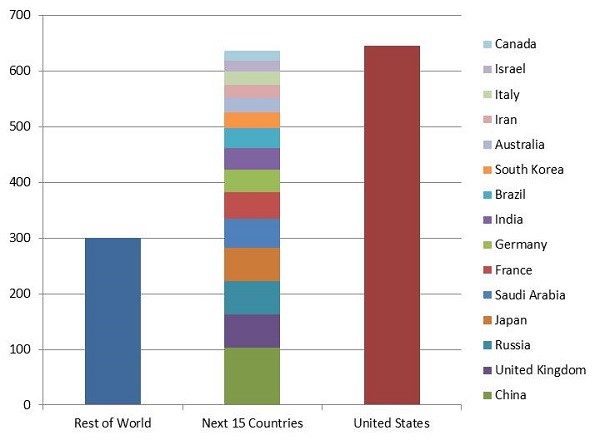A day after President Obama submitted a budget to Congress that reflects cutbacks in defense spending, China announced plans to increase military funding by 12.2 percent.
The divergent approaches come as the U.S. scales back its presence in Afghanistan and amid the administration’s strategic “pivot” from the Middle East to Asia. Meanwhile, China is increasing tensions with Japan over disputed, uninhabited islands in the East China Sea.
Related: China’s Bold Power Play Pushes Asia to the Brink
The contrasts don’t stop there. The spending plans signal President Xi Jinping’s priorities since this is his first military budget. China’s double-digit spending boost would be the biggest in three years and follows a 10.7 percent rise in 2013, suggesting Xi plans on expanding China’s reach in the Asia-Pacific region. Obama, on the other hand, is focusing on domestic issues as he approaches the midpoint of his second term.

Source: The Center for Arms Control and Non-Proliferation
In keeping with its title as the world’s second-largest economy, China’s military budget is second only to that of the U.S. Still, this year’s increase would bring the country’s military spending to $132 billion, whereas the U.S. defense budget for this year is $526.8 billion. The Pentagon’s full budget proposal for fiscal 2015 won’t be known until next month when the Defense Department releases its war funding request.
China says the increased funding is needed to modernize the country’s military, meaning more investments in missile development, submarines and its aircraft carrier. While defense experts are in agreement that the Chinese military would be no match against the U.S. in a direct conflict, some note that the spending increase could give pause to countries aligned with the U.S.
“China is increasing defense spending precisely because it wants to be a strategic counterweight to the U.S. and its allies in the region,” said William Martel, associate professor of international security studies at Tufts University. He said this move is intended to put pressure on countries like Japan and South Korea to make them question U.S. commitment to the area.
Top Reads from The Fiscal Times:





